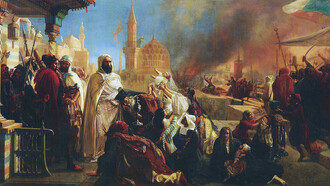Han Kang explores memory and silence in literature through her work. “We Do Not Part” and the historical account of the Jeju Massacre.
During spring 1948, Jeju Island off Korea's southern coast witnessed an appalling massacre that remained hidden for many years. The Jeju 4.3 Incident represents the brutal military response to civil disorder that killed between 25,000 and 30,000 individuals—approximately ten percent of Jeju Island's population at that time.
The root of the conflict lay in ideological tensions following Korea's liberation from Japanese colonial rule in 1945 and the subsequent division of the peninsula into two zones of occupation: Soviet influence in the North and American control in the South. The development of separate elections in the South during 1948 triggered widespread fear among Koreans about the permanent division of their nation.
The Jeju population, which displayed strong local identity and anti-authoritarian tendencies, began protesting against these measures. A violent police reaction on March 1, 1947, led to the deaths of multiple civilians during peaceful demonstrations. This incident sparked additional disorder, culminating in an armed revolt on April 3, 1948.
The South Korean government deployed military and paramilitary forces to Jeju. A brutal campaign to eliminate alleged communist insurgents ensued, resulting in village burnings and mass executions. Victims included women, children, and the elderly. The violence continued into 1949, with some operations persisting until 1954. Due to Jeju's isolation and the state’s tight information control, the public remained unaware of the massacre for decades.
For decades, the massacre was denied and silenced by the South Korean state. Survivors faced stigma and persecution, and any public discussion of the events was suppressed. Speaking about the events was tantamount to admitting political disloyalty, and the victims’ families often lived under suspicion or were blacklisted. It was not until the democratization of South Korea in the late 1980s that the first serious investigations began. Civic activists, local historians, and surviving witnesses began to speak publicly, sometimes for the first time in over forty years.
The government’s stance shifted gradually. In 2003, the South Korean government formally acknowledged state responsibility for the massacre, and in 2018, President Moon Jae-in issued a public apology, describing the incident as a "historic tragedy" and emphasizing the importance of remembrance and reconciliation. These statements were accompanied by reparative actions such as the declassification of documents and support for memorial institutions.
Today, the Jeju 4.3 Peace Park and Memorial Museum serve as reminders of this painful history. Annual commemorations are held to honor the victims, and initiatives have been launched to integrate the 4.3 Incident into national education. However, despite these steps, full justice and closure remain elusive. The massacre remains a deeply traumatic episode in Korean collective memory—one that continues to echo through literature, testimony, and acts of remembrance. Its legacy serves not only as a record of state violence but also as a reflection on the dangers of silencing dissent in the name of national unity.
Han Kang's “We do not part”: a quiet echo of collective memory
Although Nobel Laureate Han Kang is best known globally for her novel “The Vegetarian,” her literary voice has long held deep resonance in South Korea. Her most recent novel, “We Do Not Part,” stands as a haunting testament to how silenced histories and personal grief converge through the fragility of memory and language.
Rather than recounting specific events in detail, Han Kang offers a subtle and deeply affecting meditation on historical trauma, particularly that of the Jeju Massacre, through the lens of absence, silence, and intergenerational grief.
”We Do Not Part” does not rely on narrative suspense or overt historical exposition. Instead, it creates an atmosphere—one that is stark, snow-covered, and reverberating with what cannot be said aloud. The novel draws from the Jeju 4.3 Incident not by retelling its facts, but by immersing the reader in the emotional residue it left behind. The land itself becomes a quiet witness; its stillness mirrors the silence imposed on those who survived.
Through fragmented storytelling, Han Kang builds a space in which grief is neither resolved nor overcome but honored. The novel questions whether forgetting can truly protect us from pain or whether it only deepens the wounds it attempts to hide. Memory in “We Do Not Part” is not just an individual burden but a national one, echoing the long-delayed recognition of Jeju's suffering.
Snow is one of the book's most persistent motifs. Its quiet fall becomes a metaphor for suppressed history—covering, concealing, and yet refusing to erase. Just as Jeju's atrocities were hidden under layers of official silence, Han's characters walk through emotional landscapes where the weight of the past clings to them like snowfall.
But “We Do Not Part” is not just a narrative about memory and loss. It is a book that gently, painfully asks: Is forgetting a cure or merely an escape? Is healing possible if the past is erased? Or do we carry it within us regardless?
These questions do not belong only to the Korean people. As readers, we inevitably look inward, toward our own histories, our families, and our silenced traumas. The novel becomes a mirror for anyone who belongs to a nation, a family, or a lineage that has ever endured the weight of silence.
With We Do Not Part, Han Kang does not merely write about history—she reanimates it, gives it a heartbeat, and allows it to breathe through the lives of women who could have been anyone’s mother, sister, or friend. In doing so, she transforms a forgotten massacre into a living memory.















